It’s easy to forget the incredible heights Özil reached and surpassed in his spellbinding footballing career.
From juggling football on the streets of Gelsenkirchen to lifting the FIFA World Cup at the Maracana, Özil dared to be different.
An enigma by every football standard known to man, he was both notoriously quiet and quite notorious.
Nullifidians would be quick to point out the scintillating scandals he was embroiled in at various points in his career and insist that for all the star power he seemed to exude, his shine eventually became a shimmer.

And yet no amount of revisionism can obliterate the fact that Özil carried German football on his back for the most part of the previous decade. He typified the role of the modern-day attacking playmaker and was one of the very first players to take the assist statistic in football mainstream.
Whether he is actually the last of a dying breed is still open for debate. What isn’t however, was his ability to create magic with a round object at his feet.
Rise to Fame
The son of second-generation Turkish-German nationals, Özil kicked his career off at his boyhood club Shalke 04 in 2006.
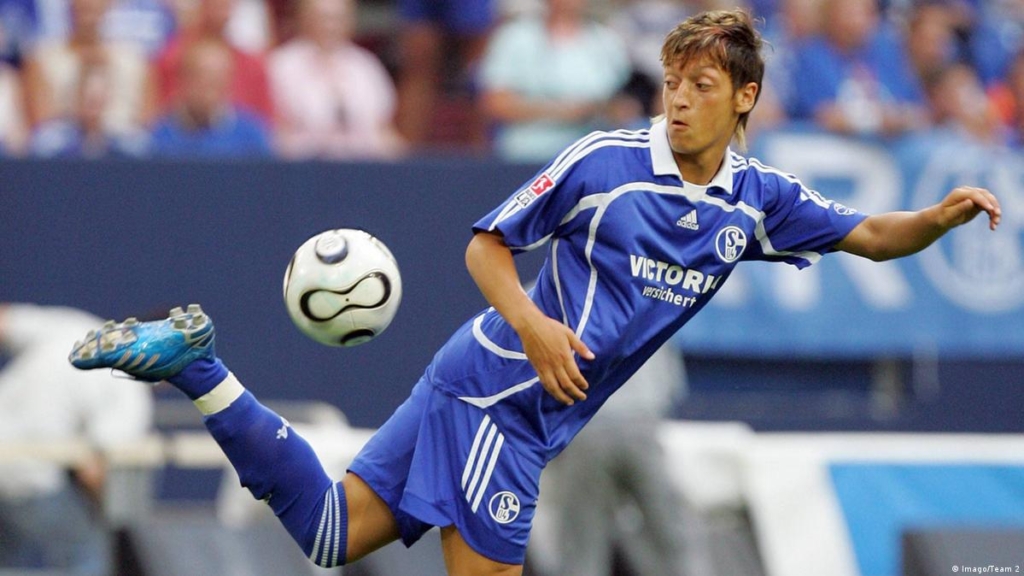
However, a fallout with club officials over wages meant he was sold on to Werder Bremen two years later for nearly €5 million.
Inconsistent Brazilian playmaker, Diego had just left Werder for Juventus, but the German club didn’t fret; they now had a player with an even higher ceiling in their ranks.
Bremen's boss, Thomas Schaaf didn’t hesitate to make him the main man, demonstrating his faith in him by placing Özil at the tip of a midfield diamond. In his first full season, the prodigious wonder kid lit up the Bundesliga with 15 assists and went on to reach the UEFA cup final that same year.
Three months later, a young Mesut dazzled at the European Under 21 Championship in Sweden, with a man-of-the-match performance in the final.
He kept the momentum going and in 2009/2010, Özil finished the season with a ridiculous 29 assists and 10 goals. That summer, Joachim Löw reluctantly put the youngster on a plane to South Africa having forced his way into Germany’s World Cup squad.
The stars had aligned for him as Ballack’s pre-tournament injury meant the relatively unknown Özil was in contention to be his natural replacement in the starting XI. Starting all 7 games, Özil contributed 3 assists and a goal as Germany stormed to the semis of the tournament.
A Carles Puyol header along with a dodgy Spanish display contrived to prevent the footballer from reaching the World Cup final at the first attempt.
FIFA going on to label him among the competition’s 10 best players proved to be an inadequate consolation.
King of Assists
Ironically, it will be Spain where his career path would next lead him. Jose Mourinho and Florentino Perez were enamored by his exploits and after a €20 million deal was finalized, Özil was off to the Spanish capital.
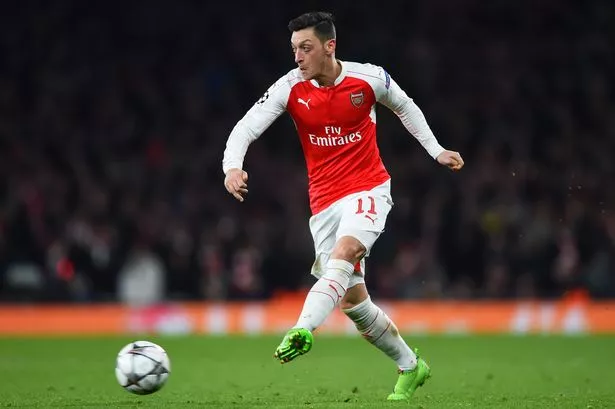
It didn’t take him long before replacing Kaka as Madrid’s new playmaker.
He went on to rack up 25 assists in his debut season at Real Madrid in all competitions, the most of any player across the top 5 leagues in Europe that year.
It all occurred in a blur after that. Pass, pass, pass to Özil, Özil pass, goal!
69 goal contributions across the next 2 campaigns would help him finish with the best assist tally in La Liga for 3 seasons, Ronaldo being the biggest beneficiary of his talent. If Özil was Coppola, Cristiano became Pacino. It was a match made in heaven.
In Ronaldo he found a confrère, marking the beginning of a frightening chemistry between the pair. Together, they inspired the Los Blancos to a league title in 2012, becoming the first side to reach 100 points in the competition’s history.
Özil was now at the peak of his career, enjoying himself, and seemed indispensable to the club.
He had finally found his place at the Bernabeu.
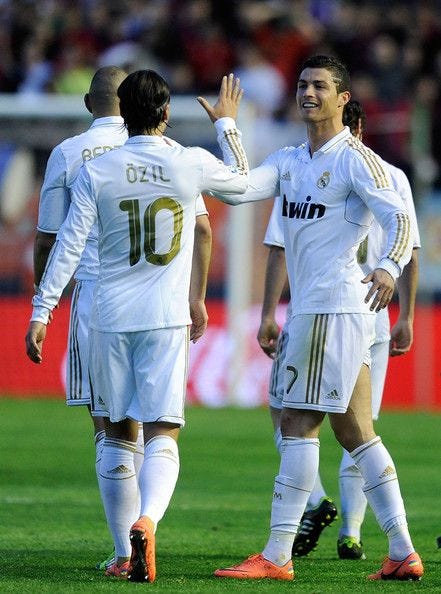
Madrid to London
After an underwhelming 2012/2013 season, Jose Mourinho was fired, and the seasoned Carlo Ancelotti was appointed.
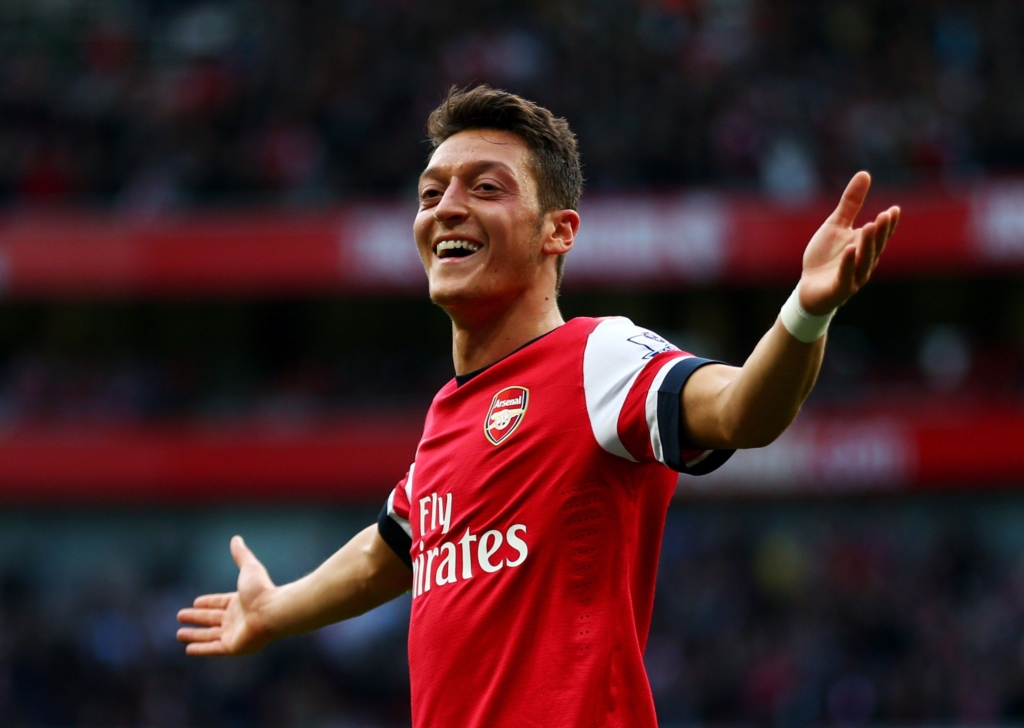
Embarrassed by the trophyless campaign of the previous season, Perez embarked on a €160 million spending spree including breaking the world transfer record to sign Gareth Bale.
To balance the books, many players were sold and with multiple departures approved, Madrid was still short of funds. Ancelotti was told one of Di Maria or Özil might have to leave.
Once it was established Ancelotti slightly favored Di Maria, and with the arrival of an even younger Spanish talent who went by the nom de plume ‘Isco’, the sale of Özil was sanctioned.
Arsenal offered £42 million and Perez took the bait. Unsurprisingly, the move received immediate backlash from Madrid fans and players alike, with Ronaldo describing it as ‘very bad news’.
A lachrymose Mesut packed the last of his bags and headed for London to embark on a brand new adventure.
The Glory Years
The first 4 years were truly spectacular as Özil mesmerized fans at the Emirates with his brilliance. In his first 2 seasons, Mesut helped Arsenal capture consecutive FA Cups, sandwiched between tasting World Cup glory in Brazil.
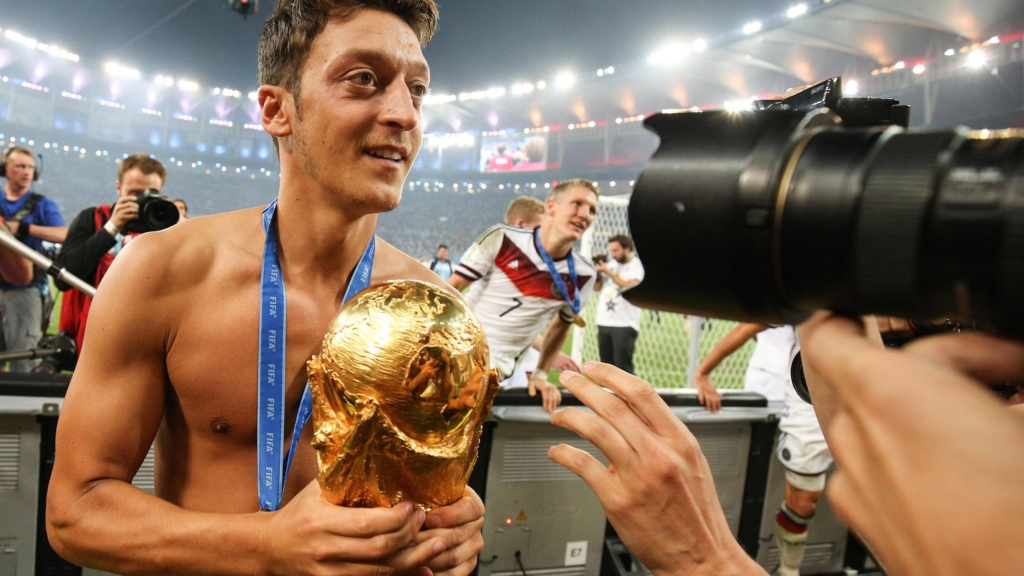
This was before adding a third FA Cup in 2017/2018 to his collection.
Amidst the litany of silverware, the 2015/2016 season proved to be his magnum opus. The World Cup winner laid on a stunning 4.2 key passes per 90 to finish the season with 19 premier league assists, one shy of Henry’s record.
Arsenal would even finish the season second that year, their best league standing since 2004/2005.
Then, in January 2018, Özil was rewarded with a new 3-year extension. Arsenal dished out a whopping £350,000 per week to make him the highest-paid player in the club’s history.
Lucrative deals with Adidas and Visit Rwanda soon followed but barely 6 months later, a new wave of change swept the Emirates.
A Broken Wand
After 22 years in charge, Arsenal Wenger finally left. In his place arrived Unai Emery along with his aggressive brand of attacking football.
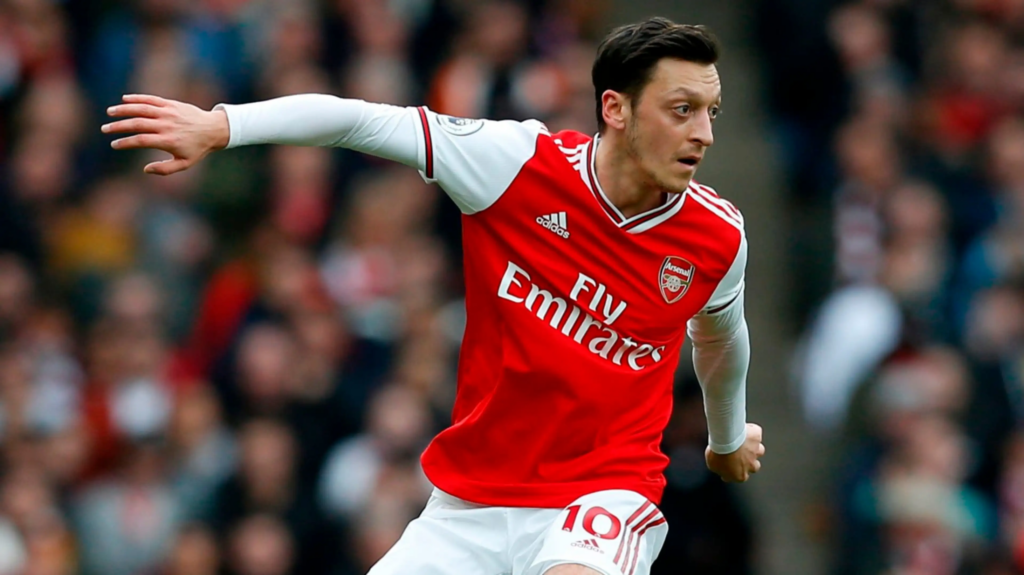
The Spaniard wanted his side to press hard and focus on off-the-ball movements, playmaker et al.
Despite the initial willingness shown by Özil, it became evident the gaffer preferred Aaron Ramsey as his central attacking midfielder.
With Xhaka and Torriera providing a double pivot for a 4–2–3–1, Özil was pushed out to the wing where his lack of pace held him back. The season slowly dragged on, and as the assist numbers decreased, back injuries and absenteeism increased.
He would later finish the campaign with the lowest league minutes he’s had since his Schalke days.
This all came against the backdrop of a catastrophic World Cup campaign in Russia. In the summer of 2018, defending champions Germany shockingly exited at the group stages; arguably the worst German performance on Russian soil since Stalingrad.
Özil emerged as the scapegoat for what had ensued and after accusing the DFB of a complete lack of respect, the playmaker ended ties with his national team. In an explosive turn of events, Özil retired, citing racially aggravated discrimination from the higher-ups.
“I am German when we win but an immigrant when we lose”, the player lamented.
He gave up his favorite white №10 jersey having scored 23 times in his 96 appearances for Die Mannschaft.
The Last Days
Back at Arsenal, the arrival of a new Spanish coach had failed to reinspire Arsenal’s most talented player.
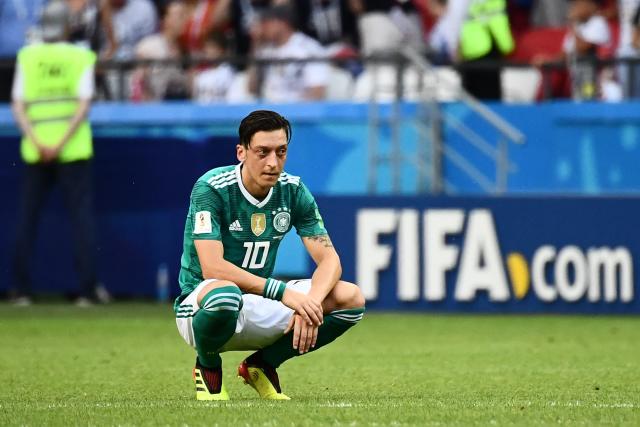
And yet for all his struggles to produce in the final third, Mikel Arteta still kept Özil regularly involved. That would change by March of that season as the world plunged into a global pandemic.
Toes had been stepped on as the club publicly distanced themselves from Özil for speaking up against the treatment of Muslims in China.
How much of an impact this had on the relationship between player and club, later on, is anybody’s guess.
With football on pause, Arsenal’s finances took a hit, and multiple layoffs were made behind the scenes. In response, the players were asked to take a 12.5% pay cut and Özil along with some senior players refused.
His pronouncement to publicly offer financial assistance to the now redundant club mascot further infuriated his employers.
By that point, the COVID-19 scare had been curtailed. And so football returned, but Özil did not.
Sources say the decision to leave him out of the Arsenal squad entirely had visibly left him fuming; the abandoned midfielder spending most of his days smoking shisha.
On the pitch, Arsenal also blew hot and cold. And in spite of public outcry for the reinstatement of Ozil, Arteta did not fold.
An amicable resolution was eventually found for both parties and in January 2021, Özil moved to Turkish giants Fenerbahçe as a free agent, with Arsenal terminating his contract six months prematurely.
He emotionally said his goodbyes to the Arsenal faithful having contributed 120 goals and assists during his time with the Gunners.
Life & Legacy
Playing at his own pace punctuated by occasional bursts of speed, prime Özil was like a cross between Kaka and Riquelme. Gliding past defenders and dizzying them with quickly exchanged passes and runs in behind, he was a walking contradiction.
He played in a languid and unhurried manner and yet was self-assured in the application of his technique and emphatic with his ball distribution.
A phlegmatic who often shunned the spotlight, Özil preferred to let the football do most of the talking.
At the national level, Özil still holds the record for the most German Player of the Year awards (5) in recent times.
He was also the top assist provider at the 2010 FIFA World Cup and UEFA Euro 2012, where he helped Germany reach the semi-final both times.

At only 34, the greatest №10 of his generation gracefully bows out of the game they call football. As a player who made simplicity stylish, he should be remembered as the exception to the rule.
And so with reference to how things panned out on his return to his country of origin, it’s poetic that Mesut Özil chose to retire cold turkey.
Latest Stories
-
Price of LPG per kilogramme constitutes 22% of taxes – LPG Marketers Association
1 hour -
Nigeria appoint Finidi George as new Super Eagles boss
2 hours -
Elevating Ghana’s creative industry: A blueprint for competing with Nigeria and South Africa
3 hours -
Poor finishing a problem for Asante Kotoko throughout the season – Prosper Ogum
3 hours -
Samini teams up with Francis Osei for ‘Sticks N Locks’ EP
3 hours -
Government should resource record labels – Seven Xavier
4 hours -
I need majority in parliament to successfully complete my term – Akufo-Addo pleads
4 hours -
Next NDC government will not recognise illegal contracts signed by current administration – Sammy Gyamfi
4 hours -
Premier League clubs vote in favour of spending cap plans
4 hours -
Nigeria’s fuel crisis brings businesses to a halt
4 hours -
King Promise impresses fans at sold out show in Singapore
4 hours -
Ejisu by-election to proceed after plaintiff withdraws injunction application
4 hours -
CSOs and NGOs unite to push for priority demands at INC-4
4 hours -
Fuel tanker bursts into flames on Kumasi-Accra highway
4 hours -
Security is tightened ahead of Ejisu by -election
5 hours

